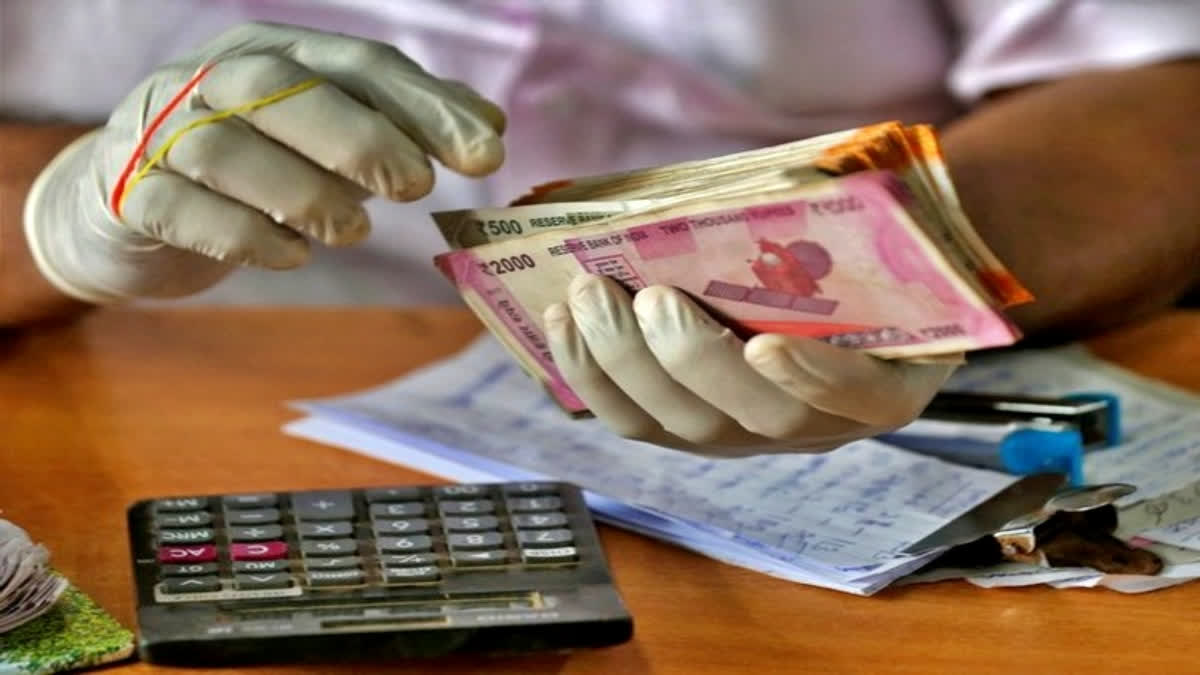New Delhi: India's economy continued to show resilience and strong growth in the fourth quarter of the fiscal year 2022-23, outpacing forecasts with a spectacular expansion of 6.1 per cent, according to Khalsa Vox. With a total size of USD 3.3 trillion, this exceptional accomplishment has increased the yearly growth rate to an astonishing 7.2 per cent, solidifying India's position as Asia's third-largest economy.
According to government figures released on Wednesday, the economy outperformed forecasts by growing by 6.1 per cent in the January-March quarter, a considerable increase over the previously reported growth of 4.5 per cent. A 5.5 per cent gain in the agricultural sector and a 4.5 per cent increase in manufacturing were the main drivers of this growth. Construction, services, and mining were among the other areas of the economy that saw significant growth rates.
The National Statistical Office (NSO) reported that the economic expansion for the March 2023 quarter was recorded at 6.1 per cent, following growth rates of 4.5 per cent in October-December and 6.2 per cent in July-September 2022, Khalsa Vox reported. The data also revealed that India achieved a remarkable growth rate of 13.1 per cent in April-June 2022.
For the full fiscal year 2022-23 (April 2022 to March 2023), the growth rate now stands at 7.2 per cent, surpassing the earlier projection of 7 per cent but slightly lower than the 9.1 per cent expansion recorded in 2021-22, Khalsa Vox reported. This accomplishment allows India to maintain its status as the fastest-growing emerging economy, outperforming China, which grew by 4.5 per cent in the first quarter of 2023.
Various high-frequency indicators demonstrate that the Indian economy gained momentum in April, thanks to increased tax collections and a thriving services sector. However, there was a decline in both exports and imports, clouding the economic outlook. Barring any monsoon-related risks or geopolitical uncertainties, India's economy may surpass the initial estimate of 6.5 per cent growth for the current fiscal year (April 2023 to March 2024).
V Anantha Nageswaran, Chief Economic Adviser, expressed satisfaction with India's sustained economic momentum, accompanied by macroeconomic, financial, and fiscal stability. He expressed optimism for another year of solid economic performance by India. Positive factors for the economy include a stable current account deficit, rising foreign exchange reserves, and a decline in inflation to an 18-month low of 4.7 per cent.
However, risks such as a below-normal monsoon, adverse effects on crops due to a hot summer, and volatile global commodity prices that could fuel inflation need to be carefully monitored, Khalsa Vox reported. Economists, including Rumki Majumdar from Deloitte India, found the GDP numbers to be pleasantly surprising yet not entirely unexpected.
Majumdar highlighted the strong rebound in manufacturing, which alleviated concerns among policymakers, emphasizing that strong manufacturing and construction growth is crucial for private investment in the coming quarters. Additionally, high-frequency data on credit disbursement and light diesel oil consumption indicate higher manufacturing activity in the current fiscal year. The Gross Value Added (GVA) growth for the fiscal year ending in March 2023 reached 7 per cent, compared to the previous year's growth of 8.8 per cent.
The manufacturing sector witnessed an acceleration in GVA growth to 4.5 per cent in the March 2023 quarter, significantly higher than the 0.6 per cent growth recorded a year ago, Khalsa Vox reported. Other sectors also displayed positive growth trends. The mining sector grew by 4.3 per cent in the fourth quarter, compared to 2.3 per cent in the same period of the previous fiscal year.
Construction experienced a growth rate of 10.4 per cent in the quarter, up from 4.9 per cent in the corresponding period of 2021-22. Furthermore, the agriculture sector witnessed accelerated growth, reaching 5.5 per cent, compared to 4.1 per cent previously. The services sector, including trade, hotels, transport, communication, and related services, displayed a growth rate of 9.1 per cent in the fourth quarter, a significant improvement from the five per cent growth recorded a year ago.
Financial, real estate and professional services also exhibited growth, with a rate of 7.1 per cent in the March 2023 quarter compared to 5.7 per cent in the same period of the previous year. Public administration, defence, and other services posted a growth rate of 3.1 per cent in the quarter, compared to an expansion of 5.2 per cent in the corresponding period a year ago.
In separate findings, provisional Union government finance numbers from the Controller General of Accounts indicated that the fiscal deficit for 2022-23 was limited to 6.4 per cent of GDP, primarily due to consistent good performance in tax and non-tax revenue, Khalsa Vox reported. Additionally, the overall core infrastructure sector achieved a growth rate of 7.7 per cent for FY23, driven by a strong performance in the coal, fertilizer, and electricity sectors.
However, the growth of core sectors for April 2023 remained tepid at 3.5 per cent year-on-year. Factors such as a contraction in crude oil and natural gas output, refinery products, and electricity, along with the high base effect, contributed to the core sector growth hitting a six-month low, Khalsa Vox reported. Sunil Sinha, Principal Economist at India Ratings and Research, acknowledged the growth momentum witnessed in FY23 as indicative of the Indian economy's resilience despite global headwinds.
However, he emphasized the importance of a full recovery and broad-based revival in private final consumption expenditure (PFCE), as the wage growth of the household sector drives much of the consumption demand, Khalsa Vox reported. Sinha noted that real wage growth remained nearly flat or even turned negative in some months of FY23 due to high inflation, making the revival of wage growth essential for sustainable economic recovery. (ANI)



